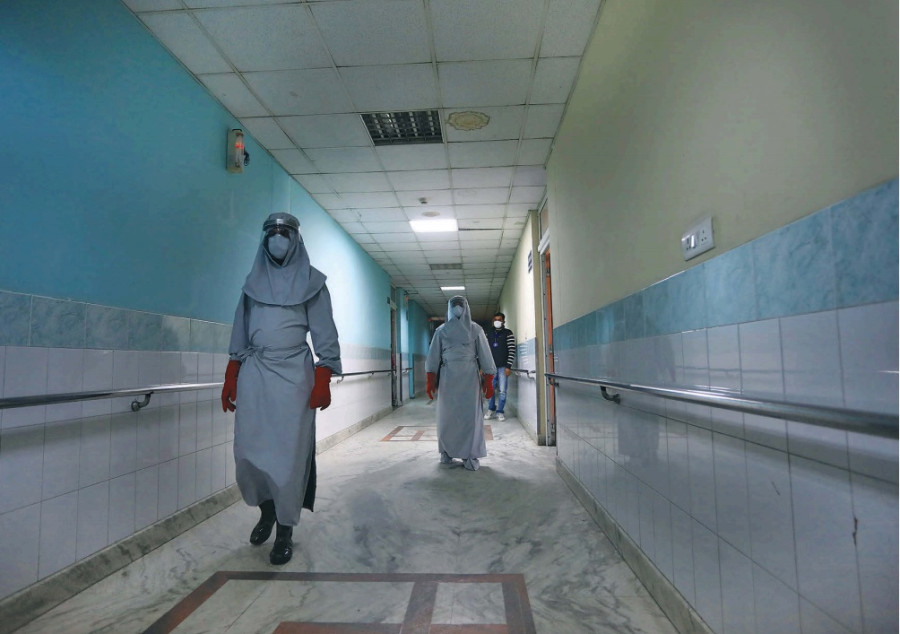Editorial
Protect health workers
No one is safe if our frontliners are unsafe.
Nepal’s pandemic preparedness in the hands of incompetent politicians has been inadequate right from the start. They have wasted precious time and public sacrifice, and have done little to contain the spread of Covid-19. As a result, new cases continue to rise colossally, having crossed the 90,000 mark this week. With the spike in cases and deaths from the coronavirus, health workers serving on the frontlines are also contracting it at an alarming rate. This rise in the infection rate of health workers, infectious disease experts say, is a sign of another impending catastrophic situation. As Dr Baburam Marasini, a former director at the division, said, health workers could become superspreaders if they get infected, and we may lack health workers if we fail to protect those working on the frontlines.
Healthcare workers are exposed to unusual levels of risk while serving on the frontlines, especially during a contagion. According to the World Health Organisation, preliminary data from many countries indicate that Covid-19 infections among health workers are far greater than among the general population. While it remains unclear if health workers contracted the virus at the workplace or in community settings, the UN body in a statement last month said that around 14 percent of the reported cases are among health workers. In some cases, the proportion was as high as 35 percent.
According to officials at the Epidemiology and Disease Control Division of the Health Ministry, over 2,000 health workers serving at over 150 health facilities across the country have contracted Covid-19; and at least three health workers, including a doctor, have succumbed to the disease. The numbers could grow when the division presents its updated data in two weeks. Most of the infected health workers are not among those who are exclusively treating Covid-19 patients, but those who work in hospitals providing service to non-Covid patients. This not only exposes the lack of workplace safety for health workers but is also evidence of an irresponsible government and healthcare stakeholders who continue to ignore the fact that health workers are crucial partners in containing this pandemic.
This is a preventable failure.
We cannot continue to put frontline health workers in harm’s way. Both the government and stakeholders must bear the moral responsibility to guarantee safe working conditions as they work extended hours, and live in constant fear of exposure to the disease. To protect health workers from the hazards of this disease, we need to ensure that hospitals enforce an infection prevention and control protocol together with an adequate stockpile of optimum quality protective gear at all times. Health workers who relieve suffering and save lives shouldn’t be worrying about the resources they need to protect themselves while treating patients.
The World Health Organisation recommends that countries have a buffer stock of protective gear. Given the current Covid-19 caseload, which is at a maximum for Nepal’s health system, this is not the first time that the availability—or, rather, lack thereof—of protective equipment has drawn attention. We must act urgently to protect health workers from infections in the workplace. The lack of protective gear should not be a threat to health workers, who play such an essential role on the frontlines to save lives. The government and stakeholders must realise that if our healthcare workers are not safe, no one is.




 14.24°C Kathmandu
14.24°C Kathmandu














